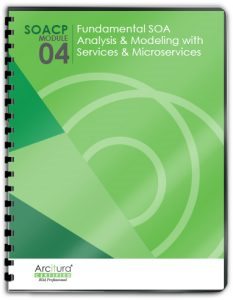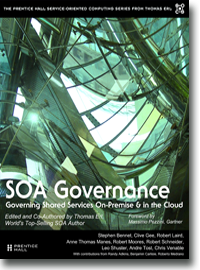SOA Patterns > Basics > SOA Project Fundamentals > Organizational Roles > Other Roles
Other Roles
These brief descriptions are by no means official definitions; they simply introduce the roles in relation to SOA project involvement. IT professionals focused on any of these areas can also assume one or more of the previously explained organizational roles.
Business Analyst
The job of a Business Analyst does not change drastically when defining business-centric services. While different organizations may have different business analysis practices and approaches, the primary objectives of this role as part of SOA projects are the creation of business use cases, business requirements, and the definition of business processes.
In relation to service modeling, Business Analysts are responsible for creating the business processes specifications that act as input for the Service-Oriented Analysis process. They are further expected to participate in the Service-Oriented Analysis process for the definition of business-centric service candidates.
Data Architect
Data Architects provide guidance for the identification of the data necessary for a service to comply with functional and non-functional requirements. They are usually also responsible for defining and maintaining the data models used to establish the structure of messages and the validation logic that can reside within service contracts and the underlying service implementations. As a result, it is fairly common for the Schema Custodian role to be assigned to a Data Architect.
NOTE
For the purpose of this book only, the term “Data Architect” encompasses information architects, data modelers, and data analysts.
Technology Architect
Technology Architects commonly assume the Service Architect role when part of SOA projects. However, even when separate Service Architects exist, the fact that services can encompass legacy resources, the architects responsible for those systems and applications may still need to be consulted or otherwise involved when designing and building the service.
NOTE
The term “Technology Architect” encompasses application architects, systems architects, solution architects, and software architects.
Cloud Computing Security Specialist
These are IT professionals with expertise specific to security threats (and mechanisms used to counter those threats) pertaining to cloud-based services and supporting cloud-based IT resources. Cloud Computing Security Specialists are distinct from SOA Security Specialists, in that they are focused solely on security issues related to cloud environments and IT resources, regardless of whether the underlying solutions are service-oriented or based on service-oriented technology architectures.
Cloud Computing Governance Specialist
Public, private, and community clouds each have their own distinct characteristics and platforms, many of which are proprietary and vendor-specific. Amidst the diversity of these environments, there is a set of mechanisms and goals that are common to most initiatives that involve or are based on the use of cloud computing. Cloud Computing Governance Specialists are proficient in establishing IT governance precepts and processes in support of regulating general and proprietary mechanisms, technologies, solutions, and IT resources that reside and operation within cloud environments in order to ensure that the planned goals are attained.
This role is distinct from the SOA Governance Specialist role in that its focus is on regulating cloud environments and cloud-based IT resources, regardless of whether they are being used by or are associated with service-oriented solutions or service-oriented technology architectures.
IT Manager
IT management’s primary focus is to manage IT resources and budgets, ensure proper staffing levels, and set the strategic direction for the department or group for which the IT Manager is responsible. Traditional IT Managers can be impacted by SOA initiatives and the need for new forms of IT Managers can further emerge.


